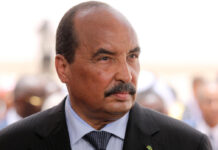DOGRA HERALD BUREAU
Islamabad, Jan 2
Cash-strapped Pakistan is expected to get USD 700 million as the next tranche of the bailout from the IMF as the Executive Board of the global lender meets on January 11, according to a media report on Tuesday.
The board of the Washington-based International Monetary Fund is set to deliberate and potentially grant final approval for the disbursement of the next USD 700 million tranche for Pakistan under the existing USD 3 billion Stand-By Arrangement (SBA), the Dawn newspaper reported.
According to the IMF Executive Board calendar, upcoming meetings are scheduled for January 8, 10 and 11, with Pakistan’s case slated for discussion on the last day.
The current IMF programme, amounting to USD 3 billion, is expected to conclude in the second week of April, with approximately USD 1.8 billion remaining undisbursed. The initial tranche of USD 1.2 billion was released in July.
In November 2023, a Staff-Level Agreement was reached between the IMF staff and Pakistani authorities regarding the first review under Pakistan’s SBA.
This agreement is contingent upon approval by the IMF’s Executive Board. Despite expectations for board approval in December, it seems the process has been scheduled for January 11.
This development holds significance for Pakistan’s economic landscape as the disbursement of the next tranche could provide much-needed financial support. The outcome of the upcoming meeting will shape the trajectory of the ongoing economic cooperation between Pakistan and the IMF.
“Discussions between the IMF staff and the authorities on policies to strengthen macroeconomic stability in the coming year continue, and important progress has been made over the FY23 budget,” the IMF said in another statement.
The IMF also updated economic projections and data for Pakistan, depicting a challenging outlook for the country in 2024. According to the IMF’s latest figures, the projected real GDP for the year is anticipated to experience a contraction of 0.5 per cent, indicating potential economic headwinds.
Simultaneously, the projection for the Consumer Price Index in 2024 shows a significant increase. This suggests a substantial rise in inflation, posing additional challenges for the country’s economic stability.
Despite a surprise jump of USD 853 million in the reserves of the State Bank in the week ending on December 22, 2023, Pakistan is keen to receive the second tranche which shows Islamabad has fulfilled the IMF’s demands for economic recovery.
The Ministry of Finance has recently announced that the July-December revenue collection target of Rs 4.425 trillion, given by the IMF, has successfully been surpassed by Rs 43 billion.
After securing the second tranche of USD 700 million this month, Pakistan is more likely to receive the remaining amount in March under the USD 3 billion SBA.
However, Caretaker Finance Minister Shamshad Akhtar had already informed the nation that the country needs to enter a new agreement with the IMF to revive the economy.
There is no hope that Pakistan could say goodbye to the lending agency. Despite tough conditions, Pakistan is still facing very high inflation which clocked in at 29.7 per cent for December from 29.2 per cent in the preceding month.
The latest data reveals that Pakistan has engaged in 24 arrangements with the IMF since becoming a member on July 11, 1950. This underscores the country’s historical reliance on IMF support to address economic challenges, according to Dawn.
Pakistan has been facing balance-of-payments-related challenges, driven by a burgeoning trade deficit, every few years due to which the country has had 23 arrangements with the IMF over the past few decades.
The current programme with the lender was agreed to in 2019 when the country faced another balance-of-payments crisis. Since then, the IMF has disbursed about $4 billion to Pakistan, with a balance of $2.6 billion remaining.


























